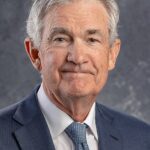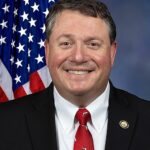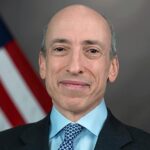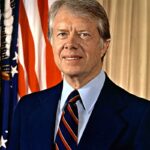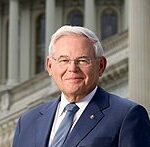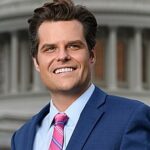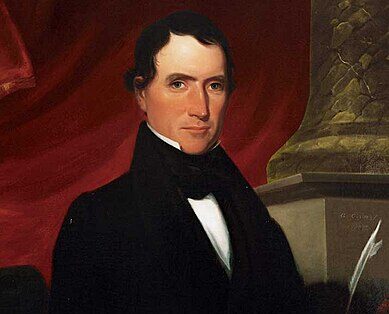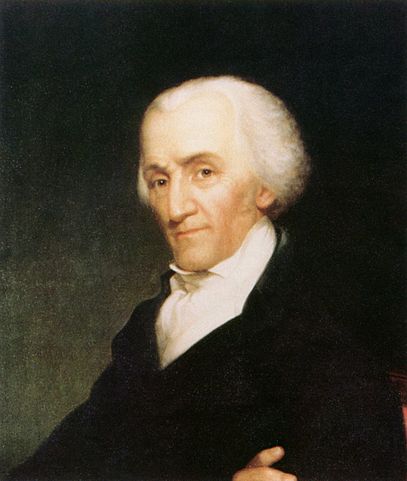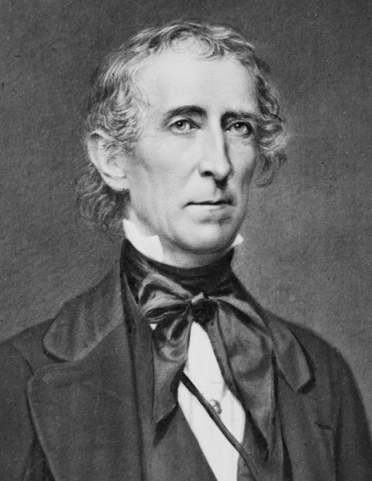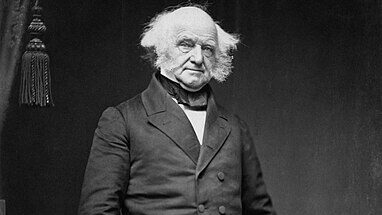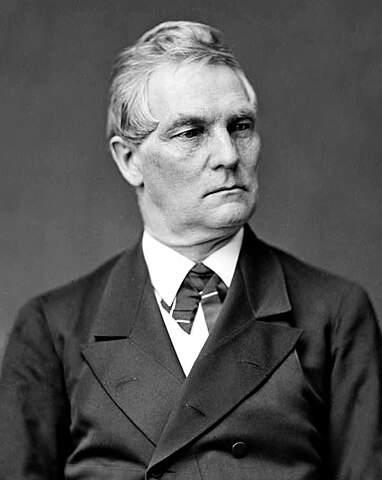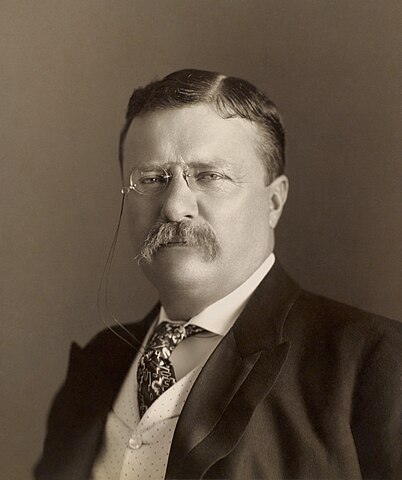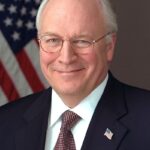
Richard Bruce Cheney was a Republican politician who served as the U.S. Representative for Wyoming’s at-large congressional district from January 1979 to March 1989, completing parts of six terms before resigning to become Secretary of Defense. He later served as the 46th Vice President of the United States from January 2001 to January 2009 under President George W. Bush. During his congressional tenure, Cheney advanced through House Republican leadership roles, emphasizing fiscal and national security issues. As Vice President, he exerted significant influence on policy, particularly in foreign affairs and counterterrorism, marking him as one of the most powerful holders of that office in history.
Policy Effectiveness and Legislative Record
In Congress, Cheney’s work centered on fiscal conservatism, energy policy, and national security. He served on the House Committee on Interior and Insular Affairs, promoting deregulation for Wyoming’s energy sectors like coal and oil. He later contributed to intelligence oversight on the House Permanent Select Committee on Intelligence.
Cheney sponsored few bills that became law, with successes limited to minor measures such as renaming a federal building and adjusting tax provisions for cooperatives. His impact was greater through co-sponsorship and support for major legislation, including the Tax Equity and Fiscal Responsibility Act of 1982 for deficit reduction via spending cuts and tax changes, the Tax Reform Act of 1986 for code simplification and rate reductions, and the Omnibus Budget Reconciliation Act of 1987 for additional fiscal reforms.
In leadership, he chaired the Republican Policy Committee from 1981 to 1987, guiding party stances on economic matters, then led the House Republican Conference from 1987 to 1989 and briefly served as House Minority Whip in 1989. He ranked as the top Republican on the Select Committee investigating Iran-Contra, co-authoring the minority report that affected views on executive foreign policy powers.
As Vice President, Cheney shaped administration responses to the September 11, 2001, attacks, advocating for the Iraq War based on claims of weapons of mass destruction and al-Qaeda links, though intelligence later contradicted these. He supported the USA PATRIOT Act of 2001, enhancing surveillance powers, and influenced energy policy through the National Energy Policy Development Group, favoring industry deregulation. Cheney also backed tax cuts via the Economic Growth and Tax Relief Reconciliation Act of 2001 and the Jobs and Growth Tax Relief Reconciliation Act of 2003. His role extended to environmental policy, where he advocated for reduced pollution controls and opposed greenhouse gas regulations.
Key Votes and Voting Record
During his House service, Cheney’s votes reflected strong conservative alignment, with an average 90.8 percent rating from the American Conservative Union. He opposed creating the U.S. Department of Education in 1979 due to bureaucratic expansion concerns and resisted stricter Clean Water Act amendments in the 1980s. In foreign affairs, he voted against overriding Reagan’s veto on South Africa sanctions in 1986 and a resolution for Nelson Mandela’s release. He supported establishing Martin Luther King Jr. Day in 1979 and 1983. Cheney maintained over 95 percent vote attendance and seldom strayed from party lines, except on some regional or procedural matters like bipartisan budget deals.
As Vice President and Senate President, Cheney cast eight tie-breaking votes, aiding passage of key measures. These included votes on April 3 and 5, 2001, for amendments to the 2002 budget resolution supporting tax relief; May 21, 2002, on a trade act amendment; April 11, 2003, on the 2004 budget; May 15 and 23, 2003, on tax reconciliation acts; December 21, 2005, on a deficit reduction bill; and March 13, 2008, on a budget resolution amendment. These votes aligned with Republican priorities on fiscal policy and economic growth.
Ethics and Controversies
In Congress, Cheney encountered no official ethics probes or violations. Criticism arose from his stance against South Africa sanctions, seen by some as favoring strategy over human rights, but this was treated as policy debate rather than misconduct. Later allegations of conflicts, such as with Halliburton, pertained to post-congressional roles.
As Vice President, controversies included the 2003 Valerie Plame affair, where his chief of staff, I. Lewis Libby, was convicted in 2007 of obstruction, perjury, and false statements for leaking a CIA agent’s identity; Cheney authorized disclosures but faced no charges. The February 2006 hunting accident, where Cheney shot attorney Harry Whittington, led to medical complications for the victim and public scrutiny, though no legal action ensued. Cheney admitted approving enhanced interrogation techniques, including waterboarding, drawing allegations of endorsing torture, but no prosecutions occurred. He resisted document releases from the energy task force, citing executive privilege, resulting in a 2004 Supreme Court decision allowing limited withholding. A 2007 Taliban attack during his Afghanistan visit killed 23, with claims targeting him, but no direct involvement was proven.
Constituent Service and Public Engagement
Representing Wyoming in Congress, Cheney addressed state-specific concerns like energy and resources through town halls in areas such as Casper and Cheyenne. His office managed casework on federal issues including veterans’ affairs, mining, and agriculture. He communicated via newsletters and local media, earning praise from industry for economic focus but criticism from environmentalists for conservation shortcomings. Reelections indicated voter support.
As Vice President, engagement shifted nationally. Cheney visited Iraq multiple times to address troops, as in a 2008 Camp Anaconda speech. He participated in media interviews, like a March 2008 ABC News appearance dismissing war polls. Public approval started at 63 percent in April 2001 but fell to 30 percent by March 2009. He received an honorary degree from Brigham Young University in 2007 amid protests, highlighting divisive public views.
Bipartisanship and Collaboration
In Congress, despite conservatism, Cheney joined the moderate Republican Wednesday Group and collaborated on Reagan-era budget talks, aiding deficit reduction pacts. On the Iran-Contra committee, he worked with Democrats for oversight reports. He served on the Bipartisan Commission on Central America, fostering cross-party foreign policy discussions.
As Vice President, Cheney’s approach emphasized executive authority expansion, challenging bipartisan post-Watergate reforms like the War Powers Resolution. He collaborated with industry leaders on energy policy but maintained a secretive style with multiple offices. While advancing conservative agendas, he occasionally diverged, such as signing a 2008 amicus brief in District of Columbia v. Heller supporting gun rights, aligning with some across aisles on Second Amendment issues.
Recent Focus and Public Stances
Post-office, Cheney has emphasized national security and institutional integrity. He critiqued Republican leadership, including Donald Trump, on constitutional grounds. In 2024, he endorsed Democrat Kamala Harris for president, prioritizing defense against institutional threats. His messaging draws on past experiences, advocating bipartisan foreign policy amid calls for accountability on interrogation practices.
Conclusion
Dick Cheney’s public service spanned Congress and the vice presidency, featuring leadership ascent and policy influence on fiscal matters, energy, and security. His congressional record shaped party strategies, while his vice presidential role amplified executive powers in counterterrorism and foreign affairs. With a conservative foundation and selective bipartisan efforts, Cheney’s tenure established a legacy of impactful, though contentious, governance.
